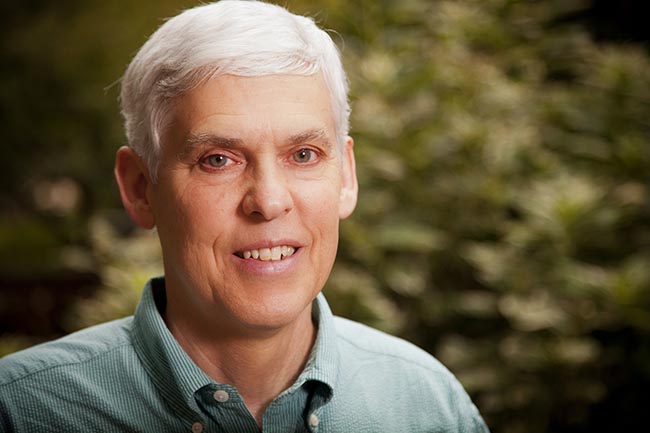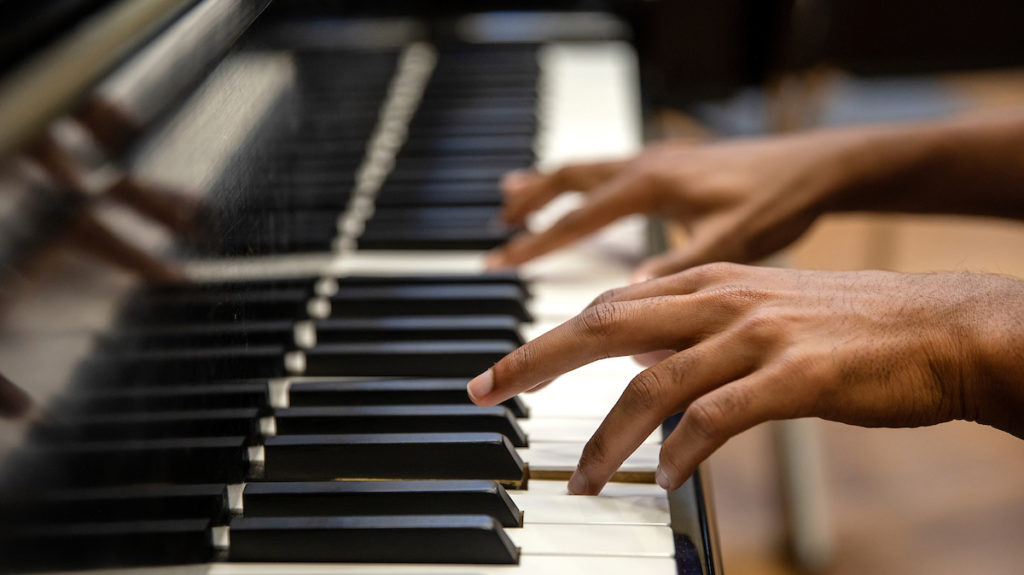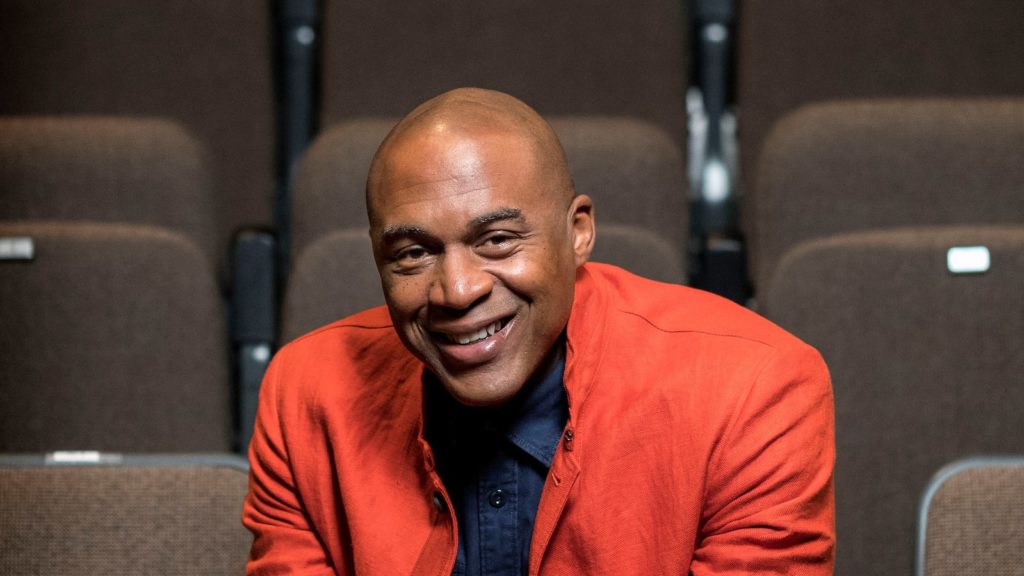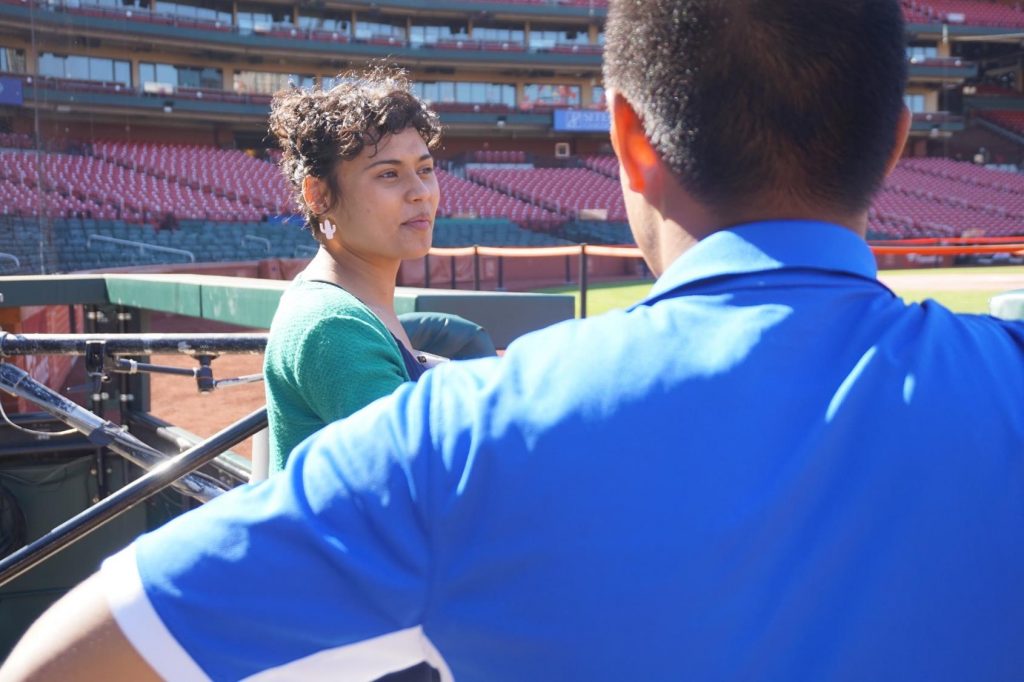
When William L. “Bill” Andrews learned several months ago that he had been named the 2015 recipient of the Thomas Jefferson Award, his first thought was how ironic it was that his name would be associated with a founding father who, throughout his long life, failed to live up to the ideals he had committed so eloquently to paper.
His second thought was gratitude to Carolina – the institution that has served as the starting point and now culmination of his intellectual journey into African American literature and culture.
Andrews made sure to include both sentiments when he accepted the award – to a standing ovation – at the Faculty Council meeting last month.
Jefferson, he noted, was the author of the national paean to “life, liberty and the pursuit of happiness,” yet on July 4, 1826 – exactly 50 years after the Declaration of Independence was signed – “Jefferson died at Monticello still claiming ownership to 100 enslaved individuals.”
“If I’ve done anything to merit this Thomas Jefferson Award, it’s probably because I’ve tried over the years to find ways to amplify the voices of men and women of African descent whose ‘ideals and objectives’ I often find to be more consistently faithful to the ideals Mr. Jefferson preached than the objectives he actually put into practice,” Andrews said.
Tapping into rhythm and blues
Andrews said the only thing he knew about black culture when he graduated from high school in 1964 was black music he played in his all-white band.
“It was soul music but it wasn’t even called that when we did it. Rhythm and blues. That is what we liked and that was what we did.”
When he walked onto the campus of Davidson College in fall of 1964, there were no courses taught in black literature. In fact, Andrews said, “There were no courses in black anything.”
It was not until 1969 – in his second year in graduate school at Carolina – that he stumbled upon a class on black autobiographies.
“I didn’t know it at the time, but it had a big impact on me because it opened this door of discovery and I eventually walked through it.”
In some ways, Andrews said, it was like trying to finding out what was on the dark side of the moon.
His exploration began with his dissertation on Charles Chesnutt, a black writer who grew up in North Carolina and served as the second principal of the Fayetteville Colored Normal School, which is now Fayetteville State University.
“Especially as a white Southerner, I was quite interested to find out more and more because the whole system, as I had grown up, was set up to keep you from knowing anything about it. And as I discovered more and more about the culture and the literature of the culture, it began to intrigue me intellectually and move me morally in ways that other literature that I studied just didn’t,” Andrews said.
Desegregating the mind

When Andrews took his first teaching job at Texas Tech in 1973, the idea still pervading academia was that “black people didn’t start writing important literature” until the start of the Harlem renaissance after World War I.
Andrews said he knew that wasn’t true, but when he went looking for the classic works of African-American literature, he discovered most of them were out of print and forgotten.
It was not so much that black scholars had not documented this period. They had. “It was just that academe, which of course was dominated by whites, did not include it.”
As his academic career progressed – at the University of Wisconsin Madison and later the University of Kansas – Andrews devoted himself to bringing those old texts back into print so that they could be read – and taught.
In 1996, Carolina recruited him home with an endowed professorship and an opportunity too good to pass up: the opportunity to digitize North American slave narratives.
That work became part of a digital project now known as “Documenting the American South.” A section of the project includes 285 autobiographies, biographies and other fictionalized accounts that today represent the first and only digital library of all slave narratives in America written in English.
“The site gets about 600,000 hits each year from people all over the world,” Andrews said.
Their stories, Andrews said, move him still.
“Many of the African Americans I’ve studied endured slavery and emancipated themselves through a commitment to liberty that was more dangerous and more determined than what the signers of the Declaration of Independence risked in the summer of 1776,” Andrews said. “The ideals of Olaudah Equiano, Benjamin Banneker, Jarena Lee, Frederick Douglass, Harriet Jacobs, and Charles Chesnutt, to name just a few exemplars of African American liberty, have inspired me over many years. Their lives and intellectual labors have seen me through to this moment.”
By Gary Moss, University Gazette




